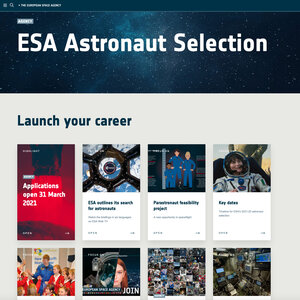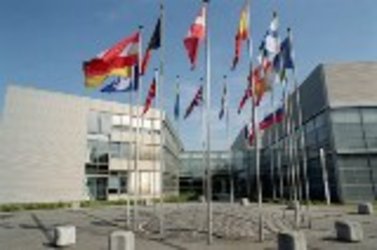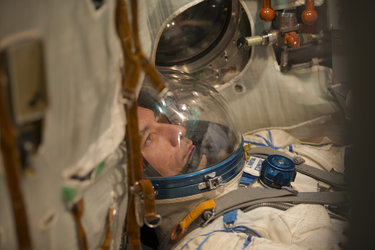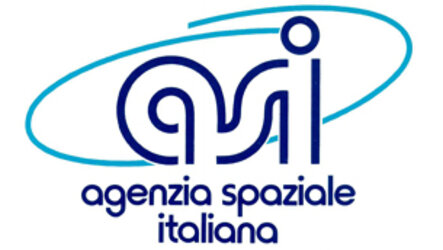Training to fly
Before being allowed to fly to the International Space Station ESA astronaut Luca Parmitano acquired many frequent flyer miles. Training requires traveling to all five partners’ training sites in Houston, USA, Star City near Moscow, Russia, Tsukuba near Tokyo, Japan, Montreal, Canada, and the European Astronaut Centre in Cologne, Germany.
In over three years Luca gained the knowledge and skills required for his mission. Roughly half of his training took place in Star City.

His homebase is the European Astronaut Centre in Cologne, Germany where all astronauts are trained in European systems on the International Space Station. From here a team follow, organise and support Luca during the long road to launch.
Critical tasks are practised over and over again. As Soyuz flight engineer Luca requires a great amount of ‘flying hours’ in the Russian spacecraft simulator, so he trained until he felt at home in the cockpit and can operate Soyuz flawlessly in any situation. During simulations Luca had his hands at the controls of the spacecraft and tested the Russian Sokol flight suit.
I have been able to enjoy every single day of my training. It has been the most exciting and exhilarating period of my life.
Specialised trainers tutored Luca in critical launch and landing procedures, as well as how to handle depressurisation, fire or toxic spills. Luca also learnt to speak Russian needed to operate Russian spacecraft and talk to his crewmates.
Luca has been taught Space Station systems in full-size mockups familiarising himself with the Station and learning how everything works. He trained in all systems and experimental operations for his mission. Hours were spent getting to know every corner of Europe’s Columbus laboratory, where most of the ESA experiments take place.
Pulling teeth

To simulate weightlessness on Earth, Luca spent many hours in the largest swimming pools in the world on realistic mockups of the Space Station.
Training for robotics involved endless practice on using the Station’s robotic arms. Operating sophisticated cranes in three dimensions is hard enough on Earth, but in space things quickly become disorienting. Practice makes perfect.
Further training enables Luca to interpret electrocardiograms and even perform dentistry. He went through survival courses in extreme environments, training to face all kinds of emergency situations under prolonged isolation and psychological stress.















 Germany
Germany
 Austria
Austria
 Belgium
Belgium
 Denmark
Denmark
 Spain
Spain
 Estonia
Estonia
 Finland
Finland
 France
France
 Greece
Greece
 Hungary
Hungary
 Ireland
Ireland
 Italy
Italy
 Luxembourg
Luxembourg
 Norway
Norway
 The Netherlands
The Netherlands
 Poland
Poland
 Portugal
Portugal
 Czechia
Czechia
 Romania
Romania
 United Kingdom
United Kingdom
 Slovenia
Slovenia
 Sweden
Sweden
 Switzerland
Switzerland

































